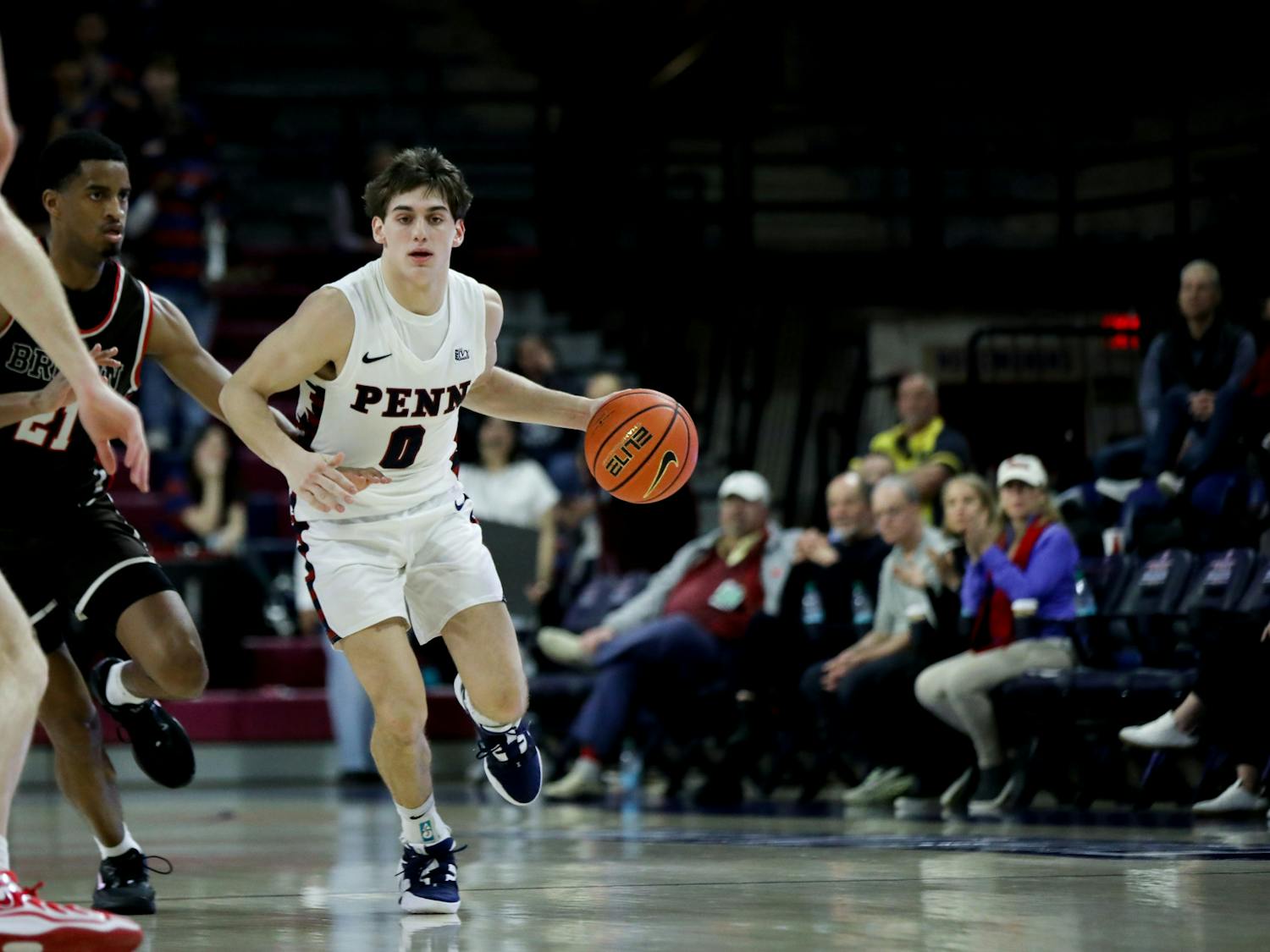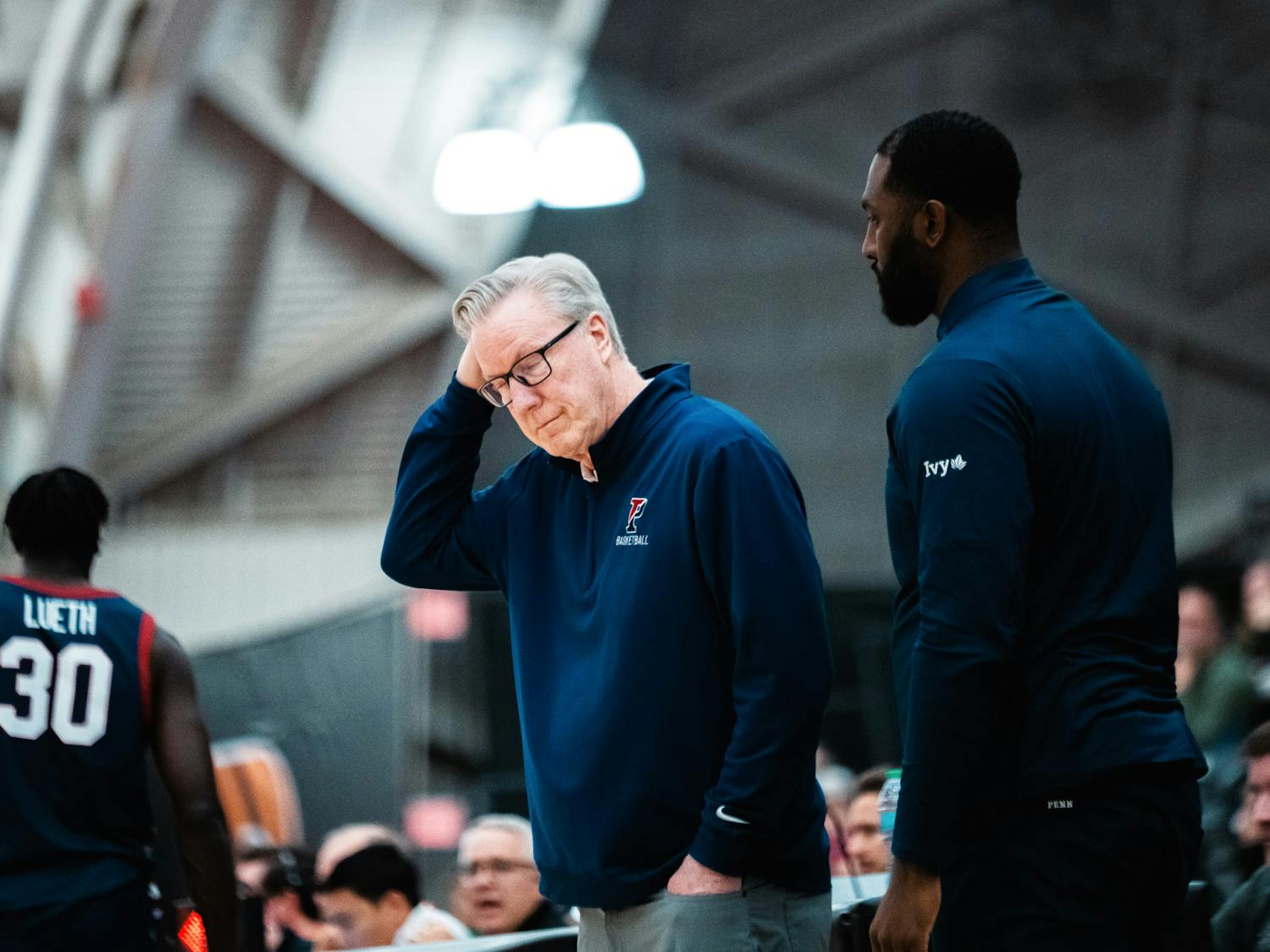During the final hours of twilight, snowflakes quietly fell onto the turf of Schoellkopf Field in Ithaca, N.Y., on March 17. The Cornell men's lacrosse team took on Binghamton underneath the stadium lights.
Because of the 28 degree weather, spectators enjoyed the game from inside the Hall of Fame Room in Schoellkopf Hall. Cornell led, 9-6, and the Big Red was on its way to its third victory of the season when a Binghamton player threw a shot on goal with 2:33 remaining in the game.
Senior co-captain George Boiardi stepped in front of the shot to block it, and the ball hit him somewhere on his chest. Boiardi took a few steps forward before falling to the ground -- he would never get up.
Medical personnel tried to resuscitate Boiardi on the field using CPR and defibrillators, but Boiardi never regained consciousness.
The shock resulting from Boiardi's death swept through the nation's tight-knit lacrosse community, and more than two weeks later, the uneasiness is just beginning to settle.
"I just couldn't stop thinking about it for at least a week," Penn senior co-captain David DeLaney said. "I was just thinking about it every day, just out here in practice, just covering up and constantly worrying about getting hit with the ball.
"I just couldn't even imagine a kid on our team getting hit with the ball and dying. I don't even know how you could go on playing lacrosse."
On Saturday, Cornell will travel to Franklin Field to face the Red and Blue at noon.
The Big Red, who was scheduled to play North Carolina less than a week after Boiardi's death, made the trip to Chapel Hill, but canceled the game. They opted to use the time to gather their thoughts and attend funeral services, which were held March 22.
"We took five days off of practice and were just contemplating life and our lacrosse existence," Cornell coach Jeff Tambroni said. "During that five days it was really a group of guys that really came together and bonded quite a bit."
Following its hiatus, the team went to work preparing for what was certain to be an emotional first game back against Yale. The Big Red won the game, 9-6, and with each step, they began to move on.
"I think it was just a relief. It was a relief to have the game over with," Tambroni said. "I think that one in particular would have been a devastating blow to take because they put a lot of pressure on themselves [to win] because of George and his family.
"We certainly have moved on from that moment."
Penn coach Brian Voelker first met Boiardi when he recruited him while coaching at Johns Hopkins and expressed his deepest regrets for the Boiardi family. Voelker called the Cornell coaches following the incident, and he held a meeting with his team.
"You sit down and you talk to these guys and for them it is hard to imagine," Voelker said. "They're college kids, they're not thinking about dying.
"We kind of got together a little bit and discussed it a little bit, but we definitely didn't have a big meeting and hash anything out. But I just told them, 'Look, you guys are pretty lucky and you just have to remember to give your mom and dad a call and tell them thanks for everything and just be thankful for what you all have.'"
The death of Boiardi, who is the fourth lacrosse player to die on the field in the last five years, has sparked a debate about the amount of equipment worn by lacrosse players.
The previous three deaths were a result of commotio cordis, a syndrome that results from a blunt, low-energy impact to the chest that can lead to cardiac arrest. However, the force of the impact does not figure into commotio cordis as much as the precise timing of the blow within the cardiac cycle. Therefore, it is uncertain whether any kind of chest protector would have helped in these cases.
This is not the first time that Voelker has had to deal with such a tragedy. When he was 10 years old, another player his age hit a good friend of his in the chest with a ball. Voelker's friend was a goalie and therefore was wearing a chest protector, but the blow still caused his death.
"We seem to be a fairly litigious society and I hope that we just don't overreact to something like this and make our kids wear bulletproof vests or whatever it is," Voelker said. "It's still pretty much a freak accident and it's still not something that happens all the time.
"I'm hoping that it doesn't change our sport. I'm hoping if we can do something, as coaches or as an NCAA committee or whatever it is, to make our sport safer we absolutely should do it. But I'm sure kids are unfortunately injured or hurt playing a lot of different sports."
The Boiardi family requested that an autopsy not be performed, so an official cause of death has not been released. Sources originally speculated that Boiardi died of commotio cordis, but if that were the case, he likely would have been revived with defibrillation.
According to Newsday, Boiardi was bleeding from the mouth, which is not normally associated with commotio cordis. It also appeared that Boiardi's heart was shocked back into rhythm and that he died due to excessive blood loss.
The Penn team believes that if something can be done to stop these tragedies it should be, but it recognizes that these cases are atypical accidents. Initially, some players, like DeLaney, were cautious, but most have managed to come to grips with the tragedy.
"It's too much of a freak occurrence to worry about and at the same time there is nothing that you really can do about it," Penn senior Will Phillips said. "It's just something that happens more frequently than you'd like."
The widespread reaction to the incident has demonstrated the strength of the lacrosse community. There are also few players who do not know someone who has been directly affected by Boiardi's death. Consequently, the Yale lacrosse program, along with others, has decided to wear Boiardi's No. 21 on its helmets for the rest of the season.
"He's a lacrosse player and an Ivy League athlete and we feel for what the Cornell program is going through," Yale coach Andy Shay said. "It is just our small way of honoring him."
Although the Red and Blue are sympathetic toward the Big Red, the Quakers realize that the game against the ninth-ranked team in the nation will require as much effort as usual, if not more.
"I'm assuming that Cornell is not going to take it easy on us," Voelker said. "And when the whistle blows hopefully we play like we are capable of playing. And we put that stuff aside for the 60 minutes of the game and play. Both teams play hard and both teams play to the best of their abilities."








